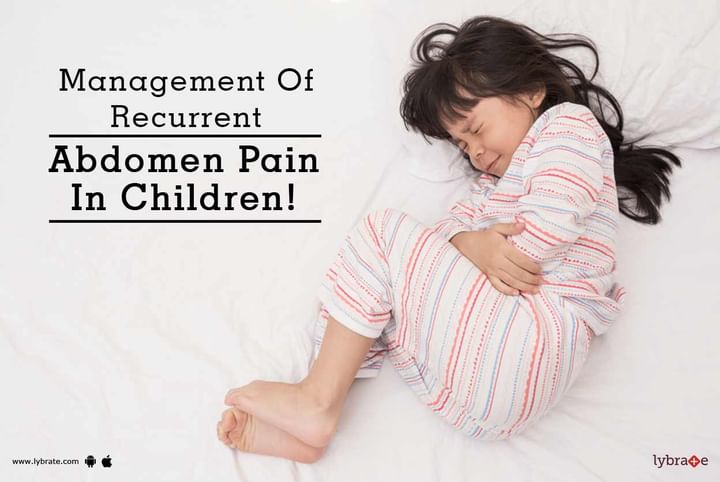Management Of Recurrent Abdomen Pain In Children!
Abdominal pain is serious and a very common problem. Commonly known as stomach aches, the treatment is generally symptom based. The symptoms of abdominal pain are commonly found in school going children. It is a discomfort in which children faces pain from the lower chest to distal groin. The pain can be dull, cramps and may be sharp. The main cause of abdominal pain is constipation. The recurrent pain in abdomen is very common in children. This is not a serious problem, but should be prevented than cured. The most common symptoms, causes and prevention are discussed below in the article.
Symptoms of Recurrent abdomen pain:
- One of the reasons for constant abdomen pain can be due to the body’s inability to digest food. Indigestion and formation of gas causes recurrent abdominal pain.
- Another symptom and reason behind abdomen pain could be the inability to pass stool.
- Constipation is quite common in children and major cause of recurrent abdominal pain.
- Chronic or severe diarrhoea.
How can you conclude the real reason behind recurrent abdominal pain:
A stool test can be conducted to know the reason behind the pain like lactose intolerance or amoebiasis or worms. Ultrasonography of the abdomen should be done to rule out any other pathology like mesenteric lymphadenitis. Diagnostic laparoscopy can be done if recurrent abdominal pain persists even after dietary modification, treating the constipation and deworming the child.
How can you treat recurrent abdominal pain:
There are many ways to treat recurrent abdominal pain as discussed in the first paragraph, the treatment depends on the symptoms and intensity, according to which the treatment is chosen and corrective measures are conducted. Some of the general treatment includes:
- Dietary Modifications: Child should avoid spicy feeds, oily feeds, fast food, milk products except curd, chocolates etc. Child should be encouraged to have fruits and vegetables with high fibre content.
- Pharmacological therapy: Anti-spasmodics should be given if pain is severe. Laxatives if constipation persists even after taking high fibre diet. Pre and Probiotics should be added. A course of antibiotics should be given if symptoms and signs are suggestive of colitis. Pizotifen has been found as a prophylactic medicine but not much evidence of use in children.
- Cognitive-Behavioural Therapy: This is a non-surgical corrective method, in which the patient is counselled and his behaviour is analyzed thoroughly and then corrective measures are suggested to get rid of the pain.



+1.svg)
